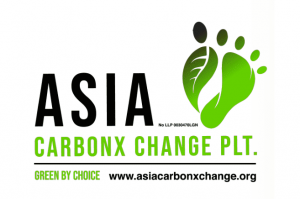ASEAN today stands at a climate crossroads.
Governments are pledging bold nationally determined contributions (NDCs) under the Paris Agreement, while corporations across the region are racing to declare net-zero strategies.
Both fronts appear aligned in ambition, but beneath the surface lies a growing tension: who truly owns the carbon claim?
When governments and companies report the same emission reduction, credibility falters.
This is not a minor technicality.
It is a fundamental fault line that could undermine both ASEAN’s standing in international negotiations and corporate trust with investors.
This article unpacks the dilemma, the risks of double counting, and the steps needed to ensure that South-East Asia can accelerate its energy transition without eroding confidence.
Governments vs corporates: Two systems, one atmosphere
Every ASEAN government submits an NDC to the United Nations Framework Convention on Climate Change.
These are binding national climate pledges that measure progress towards the Paris Agreement goals.
In parallel, corporations disclose climate action to their shareholders, customers, and regulators, often through frameworks such as the Carbon Disclosure Project, RE100, or the Science Based Targets initiative.
The two systems serve different masters – sovereigns answer to citizens and international treaties, while corporates answer to investors and markets.
Yet both draw from the same physical pool of emission reductions.
Consider Malaysia.
If Tenaga Nasional Bhd builds a solar farm, the renewable generation contributes to Malaysia’s NDC.
But if the same solar project issues Renewable Energy Certificates (RECs) that are bought by a multinational, the company may claim the same reduction in its Environmental, Social and Governance (ESG) report.
Unless safeguards exist, one unit of clean energy is counted twice.
Why double counting matters
At first glance, one might ask: does it really matter if both sides claim progress?
The short answer is yes.
For governments, NDC integrity is currency in global climate diplomacy.
Any perception of inflated numbers risks reputational damage and even reduced access to climate finance.
For corporates, credibility is the foundation of ESG. Investors and regulators are already alert to greenwashing. If corporate claims are seen as double-counted, they will be discounted – or worse, discredited.
The stakes are high.
Asean is both one of the world’s most climate-vulnerable regions and one of the fastest-growing emitters.
Without credible accounting, the region risks losing access to billions in private and multilateral climate finance that could fund its clean energy transition.
Cross-border RECs: The weak spot
The risk of double counting is most acute with cross-border RECs.
A Singaporean firm, for instance, may buy RECs from a wind project in Vietnam.
Vietnam will include the renewable electricity in its NDC tally.
At the same time, the Singaporean firm may claim its data centres run on clean energy. Both claims cannot be true simultaneously. Singapore complicates this further by acting as a trading hub.
Many multinationals centralise their sustainability procurement budgets there, even if operations are spread across Indonesia, Thailand, or the Philippines.
Without transparency, the trading jurisdiction and consumption location blur, creating confusion about where the actual renewable impact occurs.
CA: Borrowing from Article 6
The Paris Agreement offers a clear principle. Under Article 6, any cross-border carbon trade requires a Corresponding Adjustment (CA).
If Singapore buys a carbon credit from Indonesia, Indonesia deducts the reduction from its account. This ensures one claim only.
Asean now needs to extend this principle to RECs. Registries such as I-REC and TIGRs could introduce a “CA-requested” flag for export-linked RECs.
This would signal whether the host country has adjusted its NDC, preserving integrity for both governments and corporates.
Such safeguards may sound technical, but they build the trust that underpins real investment.
The bundled vs unbundled debate
A second area of confusion lies in bundled versus unbundled RECs.
- Bundled RECs are tied directly to electricity contracts, such as corporate power purchase agreements. This model dominates in integrated grids like the European Union.
- Unbundled RECs are traded independently of electricity. In ASEAN’s fragmented grids, where cross-border electricity delivery is limited, unbundled
RECs are often the only practical option.
Some critics argue that unbundled RECs are weaker.
Yet under the Greenhouse Gas Protocol, both models are valid if they meet quality criteria. Without unbundled RECs, many projects – particularly in emerging Asean markets would never be financed.
The challenge is not to ban unbundled RECs, but to ensure transparency in how they are reported.
Claim language: Why words matter
Confusion also stems from loose language. A standardised claim taxonomy could prevent inadvertent greenwashing.
For example:
- A CA-adjusted carbon credit: “We offset 1 tonne of CO.”
- An unadjusted carbon credit: “We support climate action.”
- A domestic REC: “We use 100% renewable energy.”
- An imported REC: “We support renewable projects abroad.”
These distinctions may appear semantic, but investors are increasingly scrutinising language. Vague claims invite accusations of misrepresentation.
Precise wording provides clarity and protects both corporates and governments.
Why this matters for ASEAN
South-East Asia’s climate reality is stark.
Typhoons, floods, and haze already cause billions in damages annually.
At the same time, the region is home to fast-growing energy demand, particularly from manufacturing and data centres.
Without credible accounting rules, ASEAN risks two outcomes: governments losing diplomatic capital and corporates losing investor trust.
Either would choke off the flow of private finance the region desperately needs.
With credible rules, however, Asean can unlock new investment, reassure markets, and strengthen its voice in global negotiations.
The private sector benefits from trusted disclosures, while governments retain sovereignty over their NDCs.
Clarity builds confidence
The debate over “who owns the carbon claim” is not a technical sideshow. It is central to ASEAN’s ability to finance its energy transition.
By clarifying the line between national pledges and corporate claims, applying CAs, and adopting clear claim language, ASEAN can strike the right balance: encouraging investment without undermining credibility. This is the path to attract climate finance, protect national pledges, and allow corporates to make credible claims that investors believe.
This is part 1 of a two-part series article. Part 2 will tackle the sovereignty challenge: Can ASEAN harmonise climate claims without sacrificing national interests?
Nirinder Singh Johl is the founder and CEO of Asia Carbonx Change Plt. He was formerly the managing director of TNBX, a subsidiary of Tenaga Nasional Bhd. The views expressed here are the writer’s own.
This article was originally published in The Star on the 28th of August 2025. You can visit the article here.



